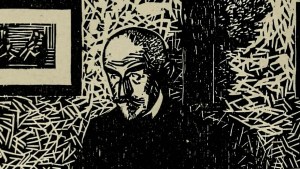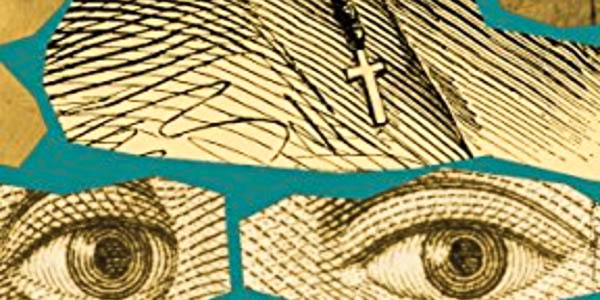Back in the late ’90s, I was a bit of a mess. I’m not just talking about the fact that I had bleached my hair blond and refused to shop anywhere that wasn’t a thrift store. In college, struggling with self-identity, trying to become a responsible adult with limited success, confused about my religious faith and lashing out like a wounded toddler, I was in need of an intervention. I’m sure we all have growing pains, but I was full-steam ahead on a serious spiritual crisis. I wasn’t sleeping and my mental health was suffering.
The one good habit I managed to develop during this period was to become a reader. Books affected me immensely and I did crazy things like read Kerouac’s On the Road and immediately hop in the car for an all-night drive across the state of Arkansas.
But books also helped to rescue me. A specific book that still lingers in my memory is Graham Greene’s The Power and the Glory, a fictional novel set during the 1930’s, a time when the Mexican government was persecuting the Catholic Church. I wasn’t Catholic, but Greene’s account of a priest struggling for survival just after the Cristero rebellion influenced me deeply.
All my life, I thought I needed to change my identity to a new, better one. Even while wrestling with my faith, I was strongly considering becoming an evangelical pastor. To do so, it seemed necessary to attain a certain glossy exterior and adopt a successful pastor-personality. I wanted to be seen as an extroverted, confident, insightful leader. I wanted to be able to flash a million-dollar smile, to remember everyone’s name right away, and give amazing sermon illustrations. To not be a phony, the transformation needed to be genuine – but an honest assessment revealed that this simply wasn’t who I was. Instead, I was sensitive, questioning, and introverted. I was stuck between a conviction that I had a specific purpose in life and the crushing realization that I was wholly inadequate to fulfill that purpose.
Graham Greene always felt out of place, too, which is why his novels are so conflicted. They’re profoundly Catholic even while they explore the dark edges of faith. He’s honest about his own failings and the bitterness of feeling that his faith was exacting a terrible cost in a world that was opposed to his beliefs. He himself consistently came up short of his own standards, and he admitted, “My life is marked by a succession of failures which left their traces on my work.”
When I began reading The Power and the Glory, I saw myself reflected in the main character’s personal crisis. The moral failures of an unnamed, drunken priest struggling to serve the persecuted Catholic population around him, admits, “But I’m a bad priest, you see.” Even so, he’s the only priest left — the others had all left the country to avoid persecution. This imperfect man, the least likely to be a good priest, was the only one who had not saved his own skin by abandoning his flock. Instead, he chose to stay at the risk of his life.
Reading about the whiskey priest, it’s hard not to empathize with him in spite of his flaws. Greene believed that each person — seen honestly just as they are — is worthy of love. He writes, “When you visualized a man or a woman carefully… when you saw the lines at the corners of the eyes, the shape of the mouth, how the hair grew, it was impossible to hate. Hate was just a failure of imagination.” I realized that my own conflicted self-image was a failure of imagination; not every person needs to fit into a specific, idealized mold.
Graham Greene and his priest taught me to forgive myself, to see the good in everything, even if that good is mixed with imperfection, and that even a broken and inadequate person can be an instrument of blessing. The whiskey priest is a deeply flawed man, but he’s also a hero.
This was the realization that sparked my imagination and changed my entire self-perspective. We learn who we are not through becoming like everyone else or by achieving an arbitrary standard of perfection, but through pouring our unique, messy, beautiful lives into our dreams. You don’t have to be perfect to accomplish great things. Today, I am a priest.

Read more:
Catholic writers you might not know

